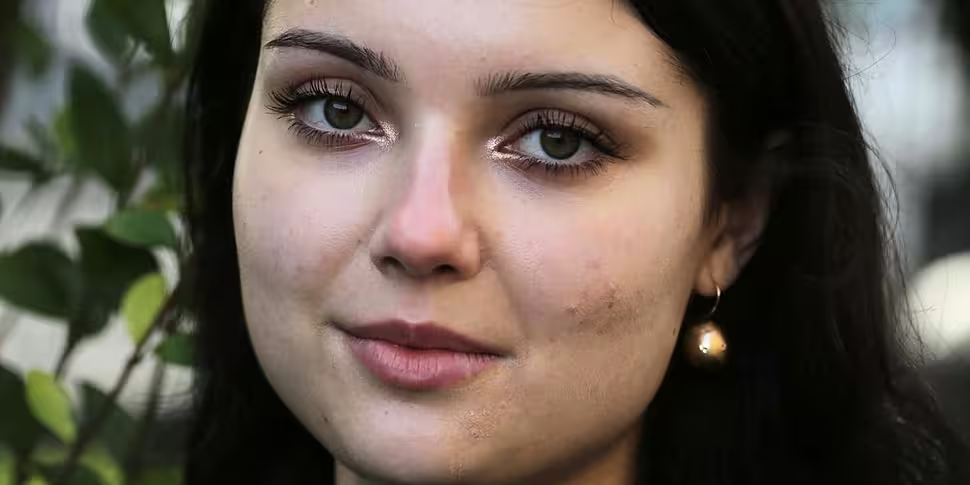To coincide with International Roma Day on April 8th 2023, Newstalk present a new radio documentary. Produced by independent radio producer Susan Dennehy, ‘A Roma Girl in Dublin’ reveals the personal experiences of four women from the Roma community living in Ireland. This is the first time that the voices of Roma women will be heard on Irish radio in this way.
‘A Roma Girl in Dublin’ will air on Newstalk on Sunday April 2nd at 7am, and Saturday April 8th at 9pm, and will be available as a podcast.
‘I got tired of hiding who I am. But I didn’t know how to get out of that…I felt very much alone…but then I stumbled across a Ted Talk of this Roma woman who was giving her experience in education and I could relate to that…and I saw her in her long skirt and I thought “she looks like me, she looks like my family and she’s out there speaking with her flag behind her”, that was a very powerful moment for me.’ - Vanessa Paszkowska, ‘A Roma Girl in Ireland’ interviewee, age 21.
Since the late 90s, European citizens of Roma ethnicity have been arriving in Ireland from many EU countries in search of a livelihood and a better life. Current figures estimate that 5,000 people of Roma ethnicity live in Ireland. In 2022, for the first time, the Roma community living in Ireland were named as an ethnic group in the census, the results of which will be published in 2023.
While Roma people work and contribute to Irish society, the latest research estimates that approximately 20% of the Roma community in Ireland live in extreme poverty, excluded from any basic supports, they live in very difficult conditions where they are often unsafe and vulnerable to discrimination.
Roma women in Ireland are also often the target of racist attacks as they are easily identified when they wear their traditional long skirts and colourful scarves.
According to the documentary producer, Susan Dennehy, ‘In my experience Irish people know little to nothing about the Roma community and yet negative stereotypes prevail. Research shows that Roma people experience shocking levels of discrimination in our society. As a result of that, they often feel the need to hide their ethnicity, this in turn leads to invisibility within society including the media.
The Roma people I met while making this documentary were warm, welcoming, hard-working and they had very strong family values. I wanted to reveal the experiences of these likeable and relatable Roma women to a mainstream Irish audience.’
The documentary opens with eye witness accounts of the Roma camp which was famously located on a roundabout on the M50 near Ballymun in the Summer of 2007, and charts the experiences of the Roma community, in particular Roma women, living in Ireland since then. The background and history of the Roma community provide context for the personal stories.
The stories of four women feature in the documentary ; Gabi Muntean, Vanessa Paszkowska, Sylvia Covaci and Marioara Rostas.
Gabi Muntean came to Ireland from Romania in the year 2000. Gabi has been working as a Community Development Worker at Pavee Point for over 10 years, In the course of her work, Gabi has witnessed the shocking living conditions of some of her community living in Ireland.
Vanessa Paszkowska is Polish Roma, she was born in the Rotunda Hospital and grew up in Dublin. Like many Roma people living in Ireland, Vanessa often felt she had to hide her ethnicity. Since she went to Maynooth University, where she is currently completing a masters, she has become politically aware and is openly proud of being Roma.
Sylvia Covaci is 19 years old, she went to school here and considers herself to be both Roma and Irish. Sylvia is studying to become an SNA and works as a Programme Assistant at the Dublin Community Cooperative Roma Employment Clinic. Sylvia's family have experienced racist attacks many times and even had to move home for their own safety.
18 year old Marioara Rostas was only in Dublin weeks before being abducted while begging on Lombard Street in Dublin city centre in January 2008. Marioara was missing for four years until her body was found buried in a shallow grave in 2012. In this documentary, Marioara's brother, Dimitru, tells her story - one of poverty, vulnerability and tragedy made all the worse by her lack of status in Ireland.
'Meeting these women, their families and allies has opened my eyes. I no longer walk past a Roma woman in the street blindly. Now I see them and I have some understanding of their culture and some insight into the challenges they face every day. Nobody should have to live in severe poverty and fear in the shadows of our city but the terrible reality is that many Roma women do.’ - Susan Dennehy, Independent Radio Producer.
Credits:
‘A Roma Girl in Dublin' was produced and narrated by Susan Dennehy.
Research by Sean Harper. Sound Mix by Moynihan Russell Studios.
The programme was Funded by the Broadcasting Authority of Ireland with the Television License Fee.
Photo courtesy of Derek Speirs.
International Roma Day is on April 8th 2023. International Roma Day is an opportunity to celebrate Romani culture and raise awareness of the issues facing Roma people. The day, takes place on 8 April every year after first being declared in 1990. International Roma Day draws attention to discrimination directed at Roma communities globally and calls for the human rights of all to be respected and observed.









